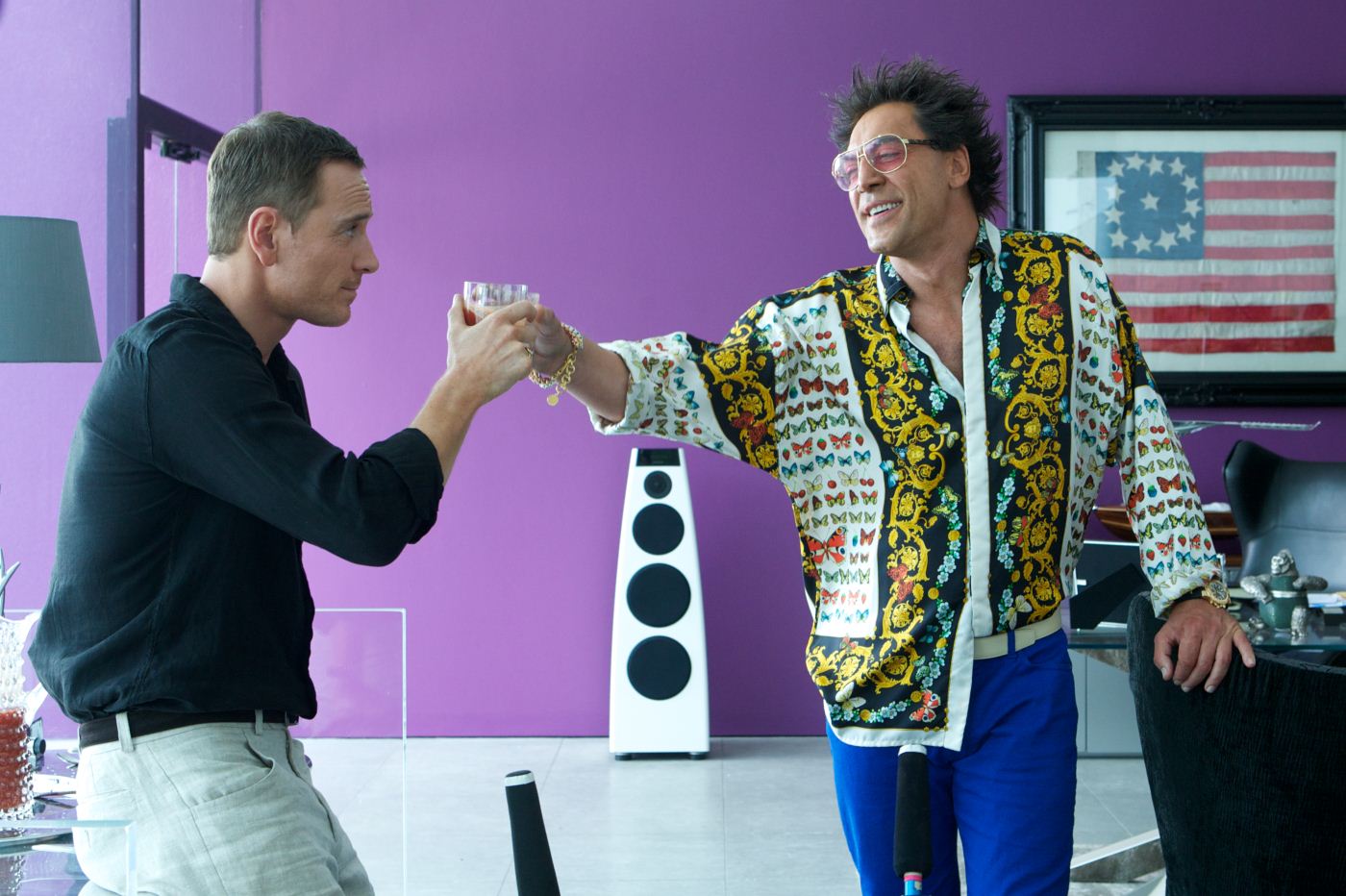
News
Cambridge Residents Slam Council Proposal to Delay Bike Lane Construction

News
‘Gender-Affirming Slay Fest’: Harvard College QSA Hosts Annual Queer Prom

News
‘Not Being Nerds’: Harvard Students Dance to Tinashe at Yardfest

News
Wrongful Death Trial Against CAMHS Employee Over 2015 Student Suicide To Begin Tuesday

News
Cornel West, Harvard Affiliates Call for University to Divest from ‘Israeli Apartheid’ at Rally
"Counselor" An Intoxicating Visual Thriller
The Counselor—Dir. Ridley Scott (20th Century Fox)—4 stars

It’s not inevitable that every new story of drug running be compared to “Breaking Bad,” but Ridley Scott’s latest film “The Counselor” starts from a place of similarity: it traces the tragic consequences for an entrant in the amphetamine trade. But beyond the premise, the film’s contrasts with the AMC series are more revealing. “Counselor” takes place not in the suburbs, but in the glitzy enclaves of the ultra-rich, of Ferrari Californias rather than Pontiacs. Its morally tarnished central character, played magnetically by Michael Fassbender, does not dominate the film. Most importantly, it’s not plot-driven—“The Counselor” is a grossly stylish thriller that makes up for story deficiencies with its visuals, dialogue, and performances.
Fassbender’s character, a lawyer called only “counselor,” wants to settle down with his girlfriend (Penélope Cruz), but his Bentley and palatial house are beyond his means. He goes into business with eccentric drug-runners Reiner (Javier Bardem) and Westray (Brad Pitt) as well as Reiner’s paramour Malkina (Cameron Diaz), and when their shipment is seized by a Mexican cartel, all hell breaks loose. The film concludes with painful but predictable repercussions for the criminals—it’s a straightforward morality tale with no plot twists.
The story, though, is the least consideration of the script, the first written for the big screen by Cormac McCarthy. The Pulitzer-winning novelist won his mainstream fame from the bleak landscapes of “No Country for Old Men” and “The Road,” but here his imagery has gone gaudily wild. Feast your eyes on Reiner’s multicolored suits and Tyler Durden sunglasses, Malkina’s chunky jewelry and cheetah-print tattoos, her live cheetah pets’ rhinestone collars—the film’s super-saturated tableaux make every scene engaging. The costume designers deserve great credit, as do Scott and the music supervisors, who pair cartel killings with hip-hop and throbbing club beats for a entrancingly hedonistic vibe.
McCarthy’s dialogue is just as remarkable. He’s funny, upping the playful chaos with unexpected one-liners. Reiner’s description of a peculiar sex act—supported by Bardem’s superb comic timing—ends with a flabbergasted Reiner uttering, “You see a thing like that, it changes you” and is one of the most brazen pieces of humor writing in recent film.
The script alternates clever, tense tête-à-tête conversations with astonishing monologues, which would feel long-winded were they not so lyrically masterful. These are what makes “The Counselor” exceptional—McCarthy’s grand themes of hubris and inhumanity take precedence over insubstantial plot. The piece de resistance of the monologues, on grief, and Pitt’s line “If your definition of a friend is someone who’d die for you, you don’t have any friends” reflect on isolation. As the counselor gets desperate, McCarthy brings in religion’s inability to help, the counselor’s expletives of “Jesus!” and “God!” sounding more useless the more he repeats them.
The performers are up to McCarthy’s lines, and they wonderfully play up their characters’ eccentricities. Bardem is clownish as Reiner, shrugging and bouncing around; Pitt is less impressive as the guarded Westray, but he’s still charmingly cagey. Diaz alone falls short: as Malkina, her femme fatale performance works only when forced theatricality seems part of the character, and her flat delivery makes McCarthy’s richer lines sound like recitations to a class.
Best of all is Fassbender, though, in a performance of emotional highs and lows. He sometimes affects the unsettling neutrality that has become his trademark, but McCarthy’s script also has him let desperate tears trickle and burst into bitter, shivering sobs. Fassbender happy is a rarer treat in his filmography, and never has he been more disarmingly giddy than in a romantic moment with Cruz’s character. It’s a magnificent performance—but he does not awkwardly overshadow his co-stars (see: “X-Men: First Class”).
In the director’s chair, Scott steers clear of grittiness. The camerawork is fluid and precise. Cinematographer Dariusz Wolski excels in smooth, vast flyover shots of cities; on the small scale, his close-ups capture characters’ faces perfectly in his narrow depth of field. From auto-body workshops and dirty Ciudad Juárez streets, Scott frames moving paintings, compositions that evenly balance each stray dog and streetlamp. The film is beautiful—a striking aesthetic for a contemporary drug thriller.
Such unconventionality is what makes “The Counselor” great. It eschews the complex plotting and urban realism of so many films of its genre, replacing them with gorgeous cinematography, heady monologues on love and death, and zany characters. The film is like a diamond its central character examines in an early scene—sparkling, though not flawless.
—Staff writer Austin Siegemund-Broka can be reached at austin.siegemund-broka@thecrimson.com.
Want to keep up with breaking news? Subscribe to our email newsletter.
